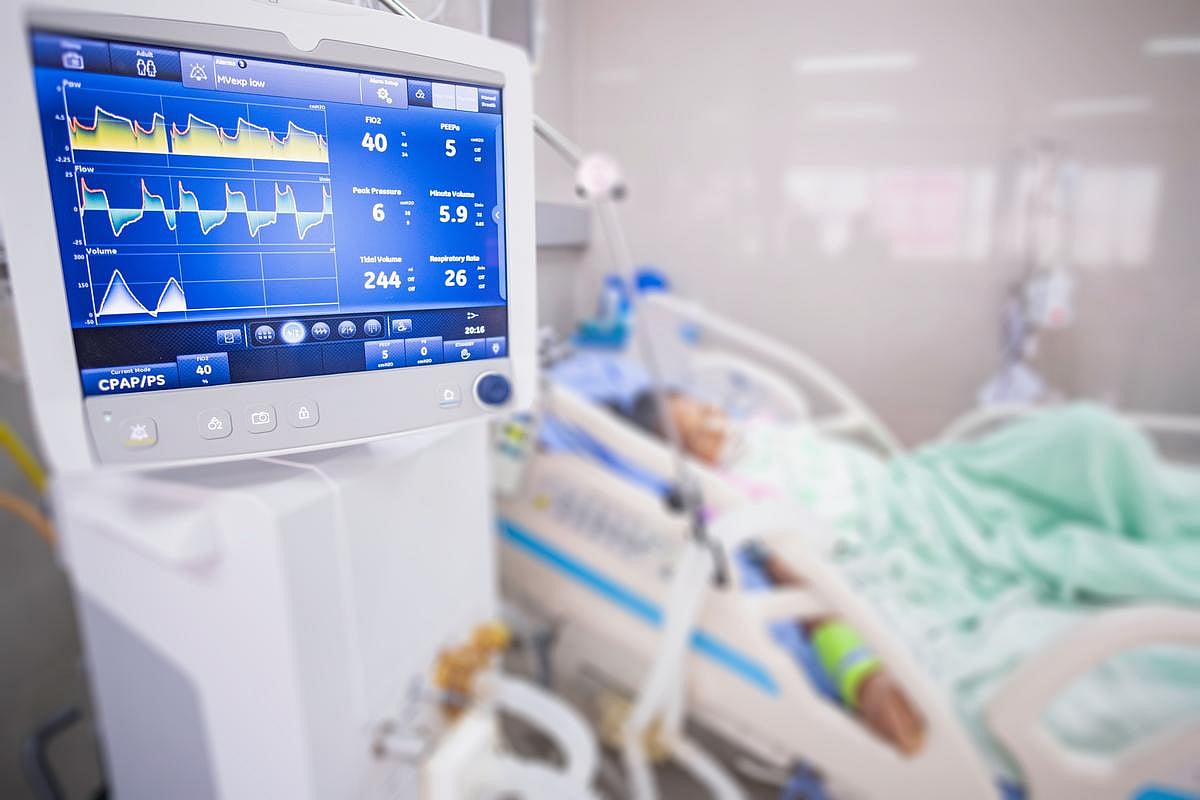Patient Resources
Get Healthy!
Deep Sedation During Ventilation Can Cost Patients Their Independence, Study Says
- October 16, 2025
- Dennis Thompson HealthDay Reporter

Patients placed on mechanical ventilation are commonly put under deep sedation, to ease the stress and discomfort of having a machine breathe for them.
But that short-term comfort might come at the cost of their long-term health.
People put under deep sedation during ventilation are 18% more likely to lose their ability to live independently, compared to those not provided such sedation, according to research published Oct. 11 in The Lancet Respiratory Medicine.
The problem is that deep sedation inhibits patients from moving their bodies, causing potentially disabling muscle wasting, researchers found.
“We found sedative medications were more likely to be delivered to patients to aid with sleep and rest,” senior researcher Dr. Matthias Eikermann said in a news release. He’s chair of anesthesiology at Montefiore Einstein in New York City.
“However, use of sedative medications can actually strip the exhausted patient of the healthy restorative sleep they need most during illness,” Eikermann continued. “Our data shows this lack of quality sleep leads to greater rates of immobility in the ICU, which compounds into even more delirium and greater loss of the muscles and nerves needed during recovery.”
Mechanical ventilation is provided to more than 300,000 Americans each year in Intensive Care Units (ICU), with a machine moving air into and out of the lungs of people with severe respiratory illness, researchers said in background notes.
Ventilators became one of the hallmarks of the COVID-19 pandemic, saving the lives of many stricken with severe illness.
Since the pandemic, the use of deep sedation during ventilation has become more common among ICUs, researchers said. In deep sedation, drugs keep patients from being fully conscious, and they aren’t easily aroused.
To see how this might affect patients, researchers tracked more than 10,000 people who lived independently prior to their admission to one of 20 Montefiore Einstein ICUs between January 2016 and July 2023.
All required mechanical ventilation for at least 24 hours in the ICU, and more than 70% received deep sedation while on a ventilator.
Results showed that people given deep sedation during ventilation were less likely to be able to live independently after leaving the hospital.
On the other hand, treatment of pain, anxiety or agitation with non-sedative or non-opioid medications was associated with a slightly decreased risk of loss of independence, the study says.
Researchers noted more than 30,000 documented episodes of emotional distress among people on ventilation. However, high levels of emotional distress actually decreased the risk of loss of independence by 12%, rather than increasing the risk.
“Among patients who had emotional distress, treatment with medications that do not lead to deeper sedation was associated with a lower risk of loss of independent living,” researchers wrote.
“The work supports the view that pain, anxiety, agitation and insomnia should not be treated with deep sedation,” the study concluded.
Researchers at Montefiore Einstein have spearheaded a new multidisciplinary committee that is looking into ways to reduce the use of deep sedation during ventilation.
“Our hope is that the data published in this investigation will fuel national efforts to improve education about deep sedation and adherence to evidence-based guidelines,” Eikermann said. “The ultimate goal is to enhance overall patient care and help people return to the lives they want to live with their loved ones.”
More information
The Cleveland Clinic has more on mechanical ventilation.
SOURCES: Montefiore Einstein, news release, Oct. 11, 2025; The Lancet Respiratory Medicine, Oct. 11, 2025

